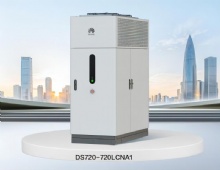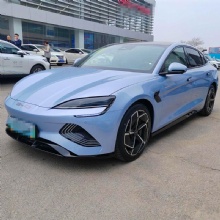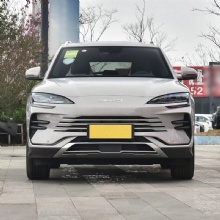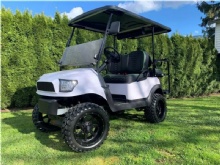Author:DavisDate:2025-10-30
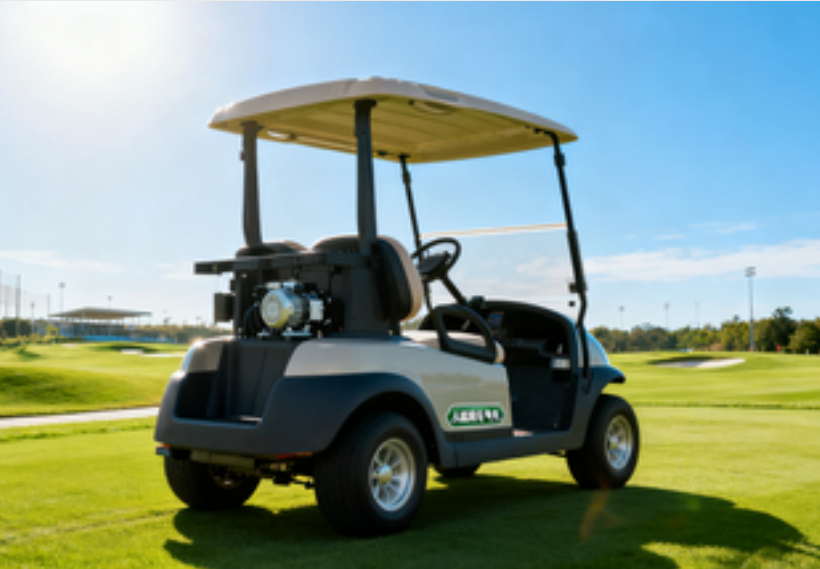
Terrain Adaptation Becomes Key! Technological Innovations in Golf Cart Motors and Electronic Control Systems Enhance Sporting Experience
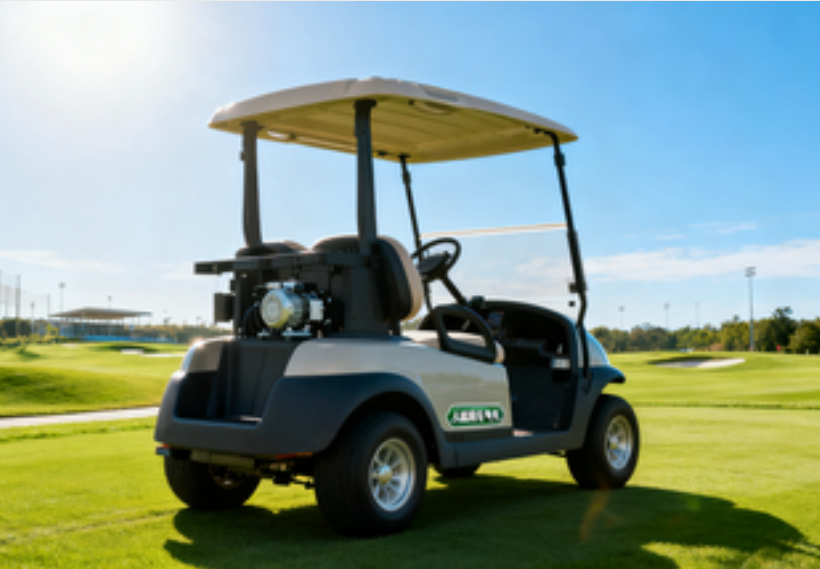
With the global popularization of golf, golf carts, as indispensable transportation tools on the course, have seen growing attention on the adaptability of their performance to different terrains. Recently, the industry has witnessed a surging focus on technical discussions around "how to match appropriate golf cart motors and electronic control systems based on terrain", with a continuous emergence of relevant technological innovations. These advancements provide crucial support for improving golf course operational efficiency and optimizing players' experience.
Diverse Terrains Demand Differentiation, Making Motor Type Selection Critical
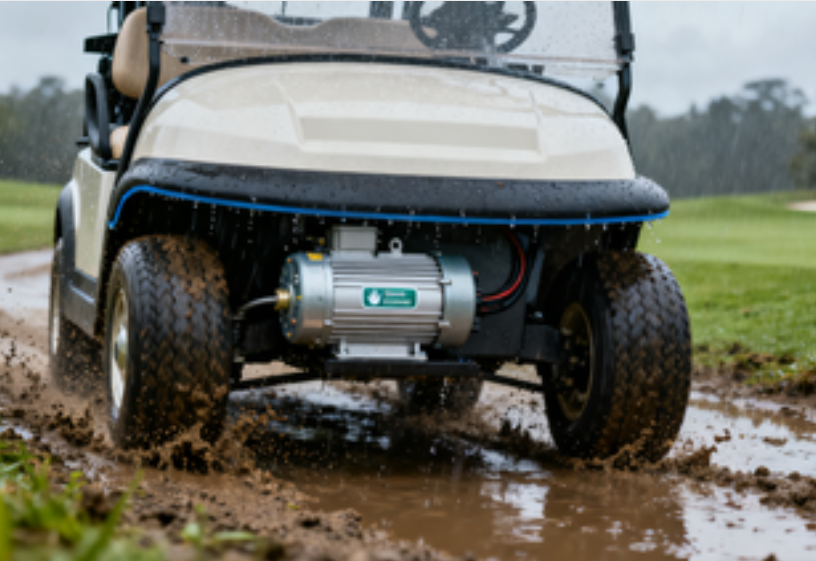
Golf course terrains are complex and varied, ranging from flat and open fairways to hilly areas with significant slopes, and even special damp, grassy regions. Different terrains impose distinctly different requirements on a cart's power output, torque performance, and stability. Industry technical experts point out that the motor, as the "power core" of a golf cart, requires rational type selection to meet the needs of different terrains.
For golf courses with flat terrain, where the demand for cart power is relatively moderate, permanent magnet synchronous motors (PMSMs) have become the mainstream choice due to their high efficiency, energy-saving features, and low operating noise. The technical director of a well-known golf cart manufacturer explained, "Permanent magnet synchronous motors consume less energy during steady-speed operation and offer excellent battery life. They are highly suitable for daily operations on flat courses, effectively reducing the later operational costs for golf courses."
When it comes to hilly or mountainous terrains with certain slopes, brushed DC motors demonstrate stronger adaptability. This type of motor delivers high torque and excellent starting performance, enabling stable power output during uphill climbs and preventing driving jitters caused by insufficient power. A representative from another equipment manufacturer stated, "The specialized carts we launched for mountainous golf courses are all equipped with customized brushed DC motors. Through multiple field tests, these carts can climb slopes below 30 degrees at a speed of 5 km/h, with operational stability far exceeding that of ordinary motors."
For special terrains that are damp or muddy, sealed asynchronous motors with waterproof and corrosion-resistant properties have gradually become a new trend. These motors feature a special sealed structure design, which can effectively block moisture and sediment, reduce failure rates, and ensure the normal operation of golf carts in harsh environments.
Electronic Control Systems Enable Precise Regulation, Ensuring Driving Safety and Stability
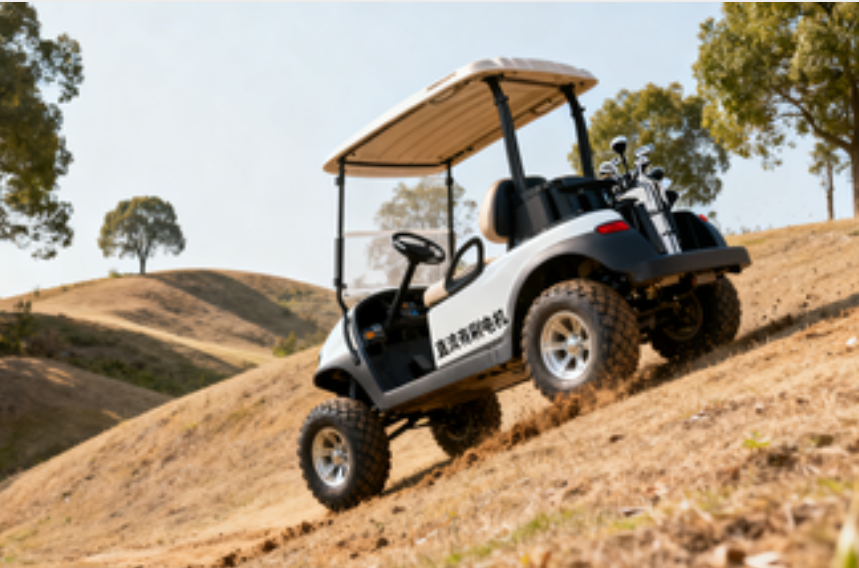
If the motor is the "power source" of a golf cart, then the electronic control system is its "intelligent brain". It can precisely regulate the motor's output power, vehicle speed, and braking based on different terrain conditions, ensuring the safety and stability of the cart's operation.
On terrains with steep slopes, the hill-start assist function of the electronic control system plays a vital role. When the cart stops on a slope, the system automatically maintains the braking state to prevent the vehicle from rolling backward, providing the driver with sufficient time to prepare for starting. During downhill travel, the system adjusts the motor's regenerative braking torque to achieve gentle deceleration, avoiding wheel lock-up caused by excessive braking and enhancing driving safety.
For uneven and bumpy terrains, the suspension adjustment function of the electronic control system can dynamically adjust the suspension stiffness according to road conditions, reducing the degree of vehicle body vibration and improving passenger comfort. Meanwhile, the system can also precisely control the motor's output torque to prevent wheel slippage on muddy roads, ensuring the cart's passability.
Furthermore, with the development of intelligent technology, an increasing number of golf cart electronic control systems have integrated the terrain recognition function. Equipped with sensors and cameras, the system can collect real-time road information, automatically identify terrain types, and quickly adjust the motor's operating parameters and control strategies, achieving seamless adaptation among "terrain, motor, and electronic control". For instance, when the system recognizes a flat fairway ahead, it automatically switches to the high-efficiency and energy-saving mode; when it detects mountainous terrain, it shifts to the high-power mode, providing users with an intelligent driving experience.
Industry Focuses on Technological Innovation to Drive Product Upgrading and Service Optimization

Currently, the golf cart industry is actively advancing technological innovation centered on terrain adaptation needs. Numerous enterprises have increased R&D investment and launched targeted motor and electronic control system solutions. At the same time, the industry is also emphasizing in-depth cooperation with golf courses, conducting customized product design and services based on the actual terrain characteristics of each course to further enhance the adaptability and practicality of products.
Industry insiders stated that in the future, with the continuous development of new energy technologies and intelligent technologies, golf cart motors and electronic control systems will move toward higher efficiency, greater intelligence, and better environmental friendliness. Their "terrain adaptation" capabilities will be further improved, providing strong support for the sustainable development of the golf sport.
↓Next [
Lets test drive our companys new drift car together in the scorching summer ]







